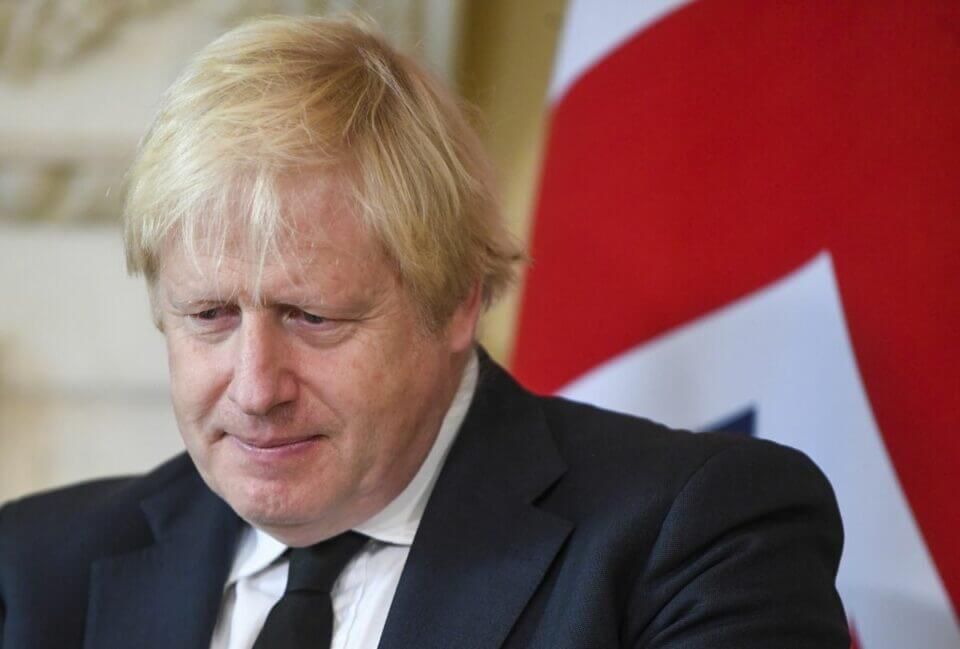
“After all, one of the major reasons for the Conservatives’ 2019 election landslide victory was due to [Johnson’s] populist rhetoric regarding mass immigration, including the Conservatives’ promise that ‘overall numbers will come down.'”
In a recent announcement, the Conservative Party made clear that it is introducing sweeping legislation to tackle the United Kingdom’s illegal immigration crisis. The proposed bill would allow for asylum claims to be refused for those coming into the country via the English Channel, while also empowering the Home Secretary to send such migrants to safe other countries. Finally, after years of inaction, the Tories appear to be addressing one of Britain’s most pressing challenges.
Former Prime Minister Boris Johnson has been notably silent on this initiative since it was announced. Despite offering criticism of his successor’s approach to implementing Brexit, the former Prime Minister’s taciturnity regarding this crucial proposal is telling. Despite all of former Prime Minister Johnson’s populist bluster, he has little to say when it comes to responding to one of the major crises of our time here in the United Kingdom. While many episodes during his tumultuous tenure as Prime Minister make one question his sincerity, it is in immigration where his showman schtick is most completely exposed.
After all, one of the major reasons for the Conservatives’ 2019 election landslide victory was due to his populist rhetoric regarding mass immigration, including the Conservatives’ promise that “overall numbers will come down.” After two decades of failure on the part of both Labour and the Tories to address mass immigration, many voters were clearly impressed by then-candidate Johnson’s views on the issue. The think tank Migration Watch UK noted that he had at least “listened” to those concerned about this issue.
However, that promise of a different approach was soon dashed when it became clear that Prime Minister Johnson’s previous handling of the matter, such as having supported amnesty for illegal immigrants and telling native Londoners to “stop moaning about the dam-burst,” still predominated.
All of this has led to the continuation (and ramping up) of a mass immigration experiment that has been an absolute failure for the past 25 years and of which there have been few British beneficiaries.
And the crisis of mass immigration has just continued and continued. Since January 1, 2018, at least 88,036 people have illegally come to Britain’s shores. Members of the British public, however, who have dared to complain, in an anarcho-tyranny fashion, were the ones punished. Nigel Farage and independent freelance journalist Steve Laws were harassed by the police, and British citizens peacefully protesting against illegal immigration in Dover in May of 2021 were told by the area’s Conservative Member of Parliament, Natalie Elphicke, that they were not “welcome in Dover.”
And in addition to his failings when it came to illegal immigration, Prime Minister Johnson’s lack of leadership on legal immigration has also escaped sufficient scrutiny. To gain a sense of the extent of his failure on this front, consider the number 1.1 million. This is the number of legal immigrants to the United Kingdom in the year ending in June, 2022, a figure that is comparable to the total population of Birmingham. Net migration (which also takes into account those who emigrated out of the United Kingdom) was 504,000 in 2022, surpassing the previous record of 336,000 in 2015, which also took place under Conservative leadership.
Most notably, the much-touted points-based system—one often promoted by the Brexit campaign as a way of controlling migration through merit and reduction—was little more in hindsight than a ruse to have a more relaxed playing field on immigration. As Lord Andrew Green of Migration Watch UK noted in late 2020, such changes to the immigration system could lead to 7 million jobs opened up to increased competition from foreign nationals. Then-Home Secretary Priti Patel, who served from 2019 to 2022, all but confirmed such a desire by the government in an LBC interview, admitting that the system was developed in collaboration with businesses, who encouraged changes like removing the immigration cap and lowering the salary threshold.
Meanwhile, former Prime Minister Johnson’s government’s response to every major international and domestic crisis was: more immigration. This included 20,000 Afghans at the end of North Atlantic Treaty Organization (NATO) involvement in that nation in 2021; 200,000 Ukrainians following the Russian invasion (this followed much more sensible plans for only allowing in those with family ties before backlash); up to 5 million Hong Kongers following the events of 2019-2020, who would be subject to “no quotas” according to then-Foreign Secretary Dominic Raab. And, in late 2021, the government considered offering more worker visas to respond to reported staffing shortages.
All of this has led to the continuation (and ramping up) of a mass immigration experiment that has been an absolute failure for the past 25 years and of which there have been few British beneficiaries. Few lose out more than the very Conservative voters who have made clear—time and again—that they want anything but more immigration. (A recent UnHerd poll also revealed that 57% of the British public believes that “immigration levels are too high.”) And as Prime Minister Rishi Sunak must appreciate, the continuation of mass immigration could leave his party electorally extinct in the future.
Prime Minister Sunak’s plan may have many difficulties with which to contend (especially with the European Court of Human Rights being a barrier to any serious further reform on the matter), but it appears that, unlike former Prime Minister Johnson, he at least appreciates the extent of widespread public concern about immigration levels. But as his Foreign Secretary James Cleverly celebrates immigration from India (“India is the future”), the Tories are not out of the woods on this issue just yet. Until they can deliver on one of their central promises from 2010 onwards—massively reducing both legal and illegal immigration—nothing will seriously change, and they will continue to appear apathetic when it comes to addressing the concerns of the British public. And come 2024, a very angry electorate will likely make its feelings known.
Edward Howard is a freelance writer based in Hertfordshire, England. He was recently featured in the Guardian series “Dining across the divide” and can be found on Twitter @EdwardHoward11











